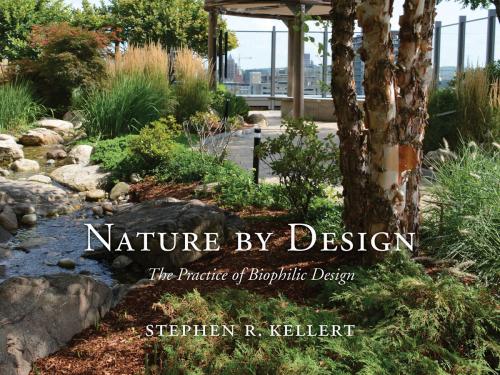Nature by Design
The Practice of Biophilic Design
Nonfiction, Art & Architecture, Architecture, Landscape, Interior Design, General Art, Criticism| Author: | Stephen R. Kellert | ISBN: | 9780300235432 |
| Publisher: | Yale University Press | Publication: | April 17, 2018 |
| Imprint: | Yale University Press | Language: | English |
| Author: | Stephen R. Kellert |
| ISBN: | 9780300235432 |
| Publisher: | Yale University Press |
| Publication: | April 17, 2018 |
| Imprint: | Yale University Press |
| Language: | English |
Biophilia is the theory that people possess an inherent affinity for nature, which developed during the long course of human evolution. In recent years, studies have revealed that this inclination continues to be a vital component to human health and wellbeing. Given the pace and scale of construction today with its adversarial, dominative relationship with nature, the integration of nature with the built environment is one of the greatest challenges of our time.
In this sweeping examination, Stephen Kellert describes the basic principles, practices, and options for successfully implementing biophilic design. He shows us what is—and isn’t—good biophilic design using examples of workplaces, healthcare facilities, schools, commercial centers, religious structures, and hospitality settings. This book will to appeal to architects, designers, engineers, scholars of human evolutionary biology, and—with more than one hundred striking images of designs—anyone interested in nature†‘inspired spaces.
Biophilia is the theory that people possess an inherent affinity for nature, which developed during the long course of human evolution. In recent years, studies have revealed that this inclination continues to be a vital component to human health and wellbeing. Given the pace and scale of construction today with its adversarial, dominative relationship with nature, the integration of nature with the built environment is one of the greatest challenges of our time.
In this sweeping examination, Stephen Kellert describes the basic principles, practices, and options for successfully implementing biophilic design. He shows us what is—and isn’t—good biophilic design using examples of workplaces, healthcare facilities, schools, commercial centers, religious structures, and hospitality settings. This book will to appeal to architects, designers, engineers, scholars of human evolutionary biology, and—with more than one hundred striking images of designs—anyone interested in nature†‘inspired spaces.















